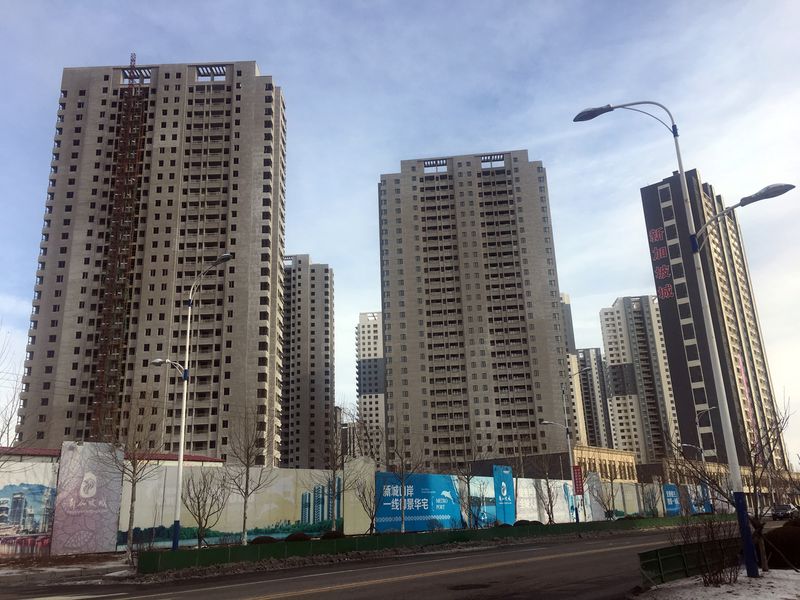By Liangping Gao and Ryan Woo
BEIJING (Reuters) - China's new home prices in May fell for the second month this year, depressed by still fragile demand as widespread COVID-19 curbs dented already weak buyer confidence, suggesting more policy stimulus is needed to return the market to growth.
Average new-home prices in 70 major cities dropped 0.1% on a month-on-month basis, after a 0.2% decline in April, according to Reuters calculations based on National Bureau of Statistics (NBS) data released on Thursday.
From a year earlier, prices slipped 0.1%, down for the first time since September 2015 and retreating from a 0.7% gain in April.
Year-on-year price growth has eased since May last year due to a slowing economy, tight mortgage disbursement and as sentiment weakened amid a liquidity crisis that led to some high-profile loan defaults by developers.
Shares of mainland developers fell on Thursday, with the CSI300 Real Estate Index down around 1.4% after opening about 2% higher.
China's property sector, traditionally a pillar of growth, deteriorated further in recent months, spurring authorities to take additional measures to stimulate home demand hit by COVID-19 restrictions in some of the country's biggest cities.
Shanghai was locked down for two months until the end of May, while Beijing shut entertainment and other venues in some districts to contain outbreaks.
In January to May, property sales by floor area sank 16.8% from a year earlier in the Chinese capital, according to the local statistics bureau on Thursday.
The central Chinese city of Wuhan, where the new coronavirus was first detected in late 2019, eased home purchase curbs for some buyers in May, allowing households with more than one child to buy up to three properties.
In May, more than 100 cities implemented easing measures to support the property sector, mainly targeting homebuyers in small and medium-sized cities, including cuts in mortgage rates, smaller down payments and a relaxation in purchasing rules.
In May, 25 out of 70 cities surveyed by the NBS reported an uptick in new home prices from the previous month, compared with 18 cities recording a gain in April.
The property sector in small cities remained bleak last month with monthly new home prices down for the ninth month.
"Despite more local housing easing measures in recent months, we believe the property markets in lower-tier cities may continue to face strong headwinds from weaker growth fundamentals than large cities, including net population outflows and potential oversupply problems," Goldman Sachs (NYSE:GS) analysts wrote in a note.
China's property market woes are likely to worsen this year with prices remaining flat and sales and investment falling further, according to a recent Reuters poll.
To boost demand, financial authorities last month cut their benchmark rate for mortgages and lowered the mortgage rate floor for first-time home buyers.
Property sales by floor area in May fell at a slower pace for the first time in three months.

More easing policies targeted to help demand are expected in the coming months to stimulate the sector.
More stimulus policies are needed to stabilise the property market, especially further reductions in mortgage rates for buyers, said Zhang Dawei, an analyst with property consultancy Centaline.